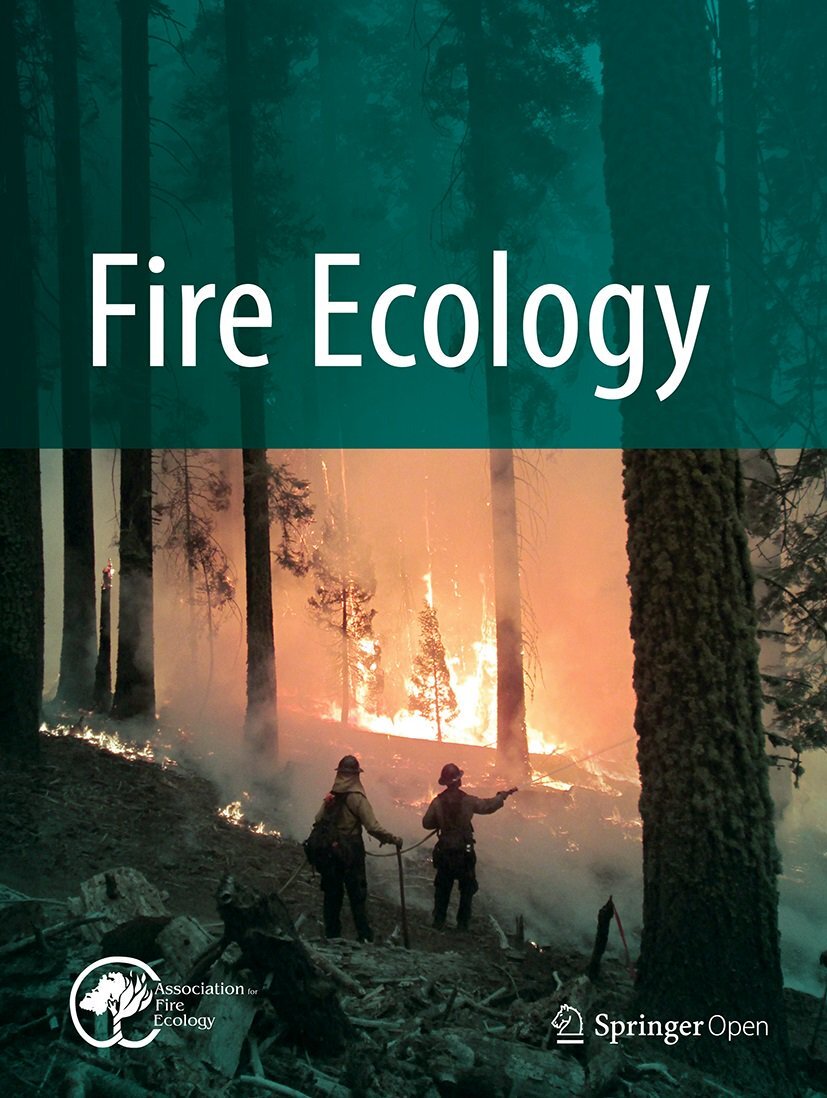Guiding principles for transdisciplinary and transformative fire research
IF 5
3区 环境科学与生态学
Q1 ECOLOGY
引用次数: 0
Abstract
Managing landscape fire is a complex challenge because it is simultaneously necessary for, and increasingly poses a risk to, societies and ecosystems worldwide. This challenge underscores the need for transformative change in the way societies live with and manage fire. While researchers have the potential to act as agents of transformative change, in practice, the ability to affect change is often constrained by siloed and biased expertise, rigid decision-making institutions, and increasingly vulnerable social-ecological systems where urgent rather than long-term solutions are prioritized. Addressing these challenges requires more holistic and equitable approaches to fire research that promote new models of transdisciplinary thinking, collaboration, and practice. To advance transformative solutions to this complex fire challenge, we propose four principles for conducting transdisciplinary fire research: (1) embrace complexity, (2) promote diverse ways of knowing fire, (3) foster transformative learning, and (4) practice problem-centered research. These principles emerged from our experience as a group of early-career researchers who are embedded within and motivated by today’s complex fire challenge within British Columbia (BC), Canada. In this forum piece, we first describe the four principles and then apply the principles to two case studies: (1) BC, a settler-colonial context experiencing increased size, severity, and impacts of wildfires, and (2) our ECR discussion group, a space of collective learning and transformation. In doing so, we present a unique contribution that builds on existing efforts to develop more holistic fire research frameworks and demonstrates how application of these principles can promote transdisciplinary research and transformation towards coexistence with fire, from local to global scales. In this forum piece, we identify and apply four guiding principles for transdisciplinary fire research. Collectively, these principles can foster more inclusive applied fire research that matches the scope and scale of today’s fire challenge and promotes transformative change towards coexisting with fire.跨学科和变革性火灾研究的指导原则
地貌火灾管理是一项复杂的挑战,因为它对全世界的社会和生态系统既是必要的,又日益构成威胁。这一挑战突出表明,有必要转变社会与火灾共存和管理火灾的方式。虽然研究人员有可能成为变革的推动者,但在实践中,影响变革的能力往往受到各自为政和有偏见的专业知识、僵化的决策机构以及日益脆弱的社会生态系统的制约,因为在这些系统中,优先考虑的是紧急而非长期的解决方案。要应对这些挑战,就必须采用更加全面和公平的方法开展消防研究,促进跨学科思维、合作和实践的新模式。为了推动以变革的方式解决这一复杂的火灾挑战,我们提出了开展跨学科火灾研究的四项原则:(1) 拥抱复杂性,(2) 推广认识火灾的多样化方式,(3) 促进变革性学习,(4) 开展以问题为中心的研究。这些原则源自我们这群早期职业研究人员的经验,他们身处加拿大不列颠哥伦比亚省(BC 省),并受到当今复杂的火灾挑战的激励。在这篇论坛文章中,我们首先介绍了这四项原则,然后将这些原则应用到两个案例研究中:(1) 不列颠哥伦比亚省,这是一个移民殖民地,野火的规模、严重程度和影响都在增加;(2) 我们的 ECR 讨论小组,这是一个集体学习和转变的空间。在此过程中,我们提出了一项独特的贡献,即在现有努力的基础上制定更全面的火灾研究框架,并展示如何应用这些原则促进跨学科研究和转型,以实现从地方到全球范围内与火灾的共存。在这篇论坛文章中,我们确定并应用了跨学科火灾研究的四项指导原则。总之,这些原则可以促进更具包容性的火灾应用研究,以应对当今火灾挑战的范围和规模,并推动实现与火灾共存的变革。
本文章由计算机程序翻译,如有差异,请以英文原文为准。
求助全文
约1分钟内获得全文
求助全文
来源期刊

Fire Ecology
ECOLOGY-FORESTRY
CiteScore
6.20
自引率
7.80%
发文量
24
审稿时长
20 weeks
期刊介绍:
Fire Ecology is the international scientific journal supported by the Association for Fire Ecology. Fire Ecology publishes peer-reviewed articles on all ecological and management aspects relating to wildland fire. We welcome submissions on topics that include a broad range of research on the ecological relationships of fire to its environment, including, but not limited to:
Ecology (physical and biological fire effects, fire regimes, etc.)
Social science (geography, sociology, anthropology, etc.)
Fuel
Fire science and modeling
Planning and risk management
Law and policy
Fire management
Inter- or cross-disciplinary fire-related topics
Technology transfer products.
 求助内容:
求助内容: 应助结果提醒方式:
应助结果提醒方式:


